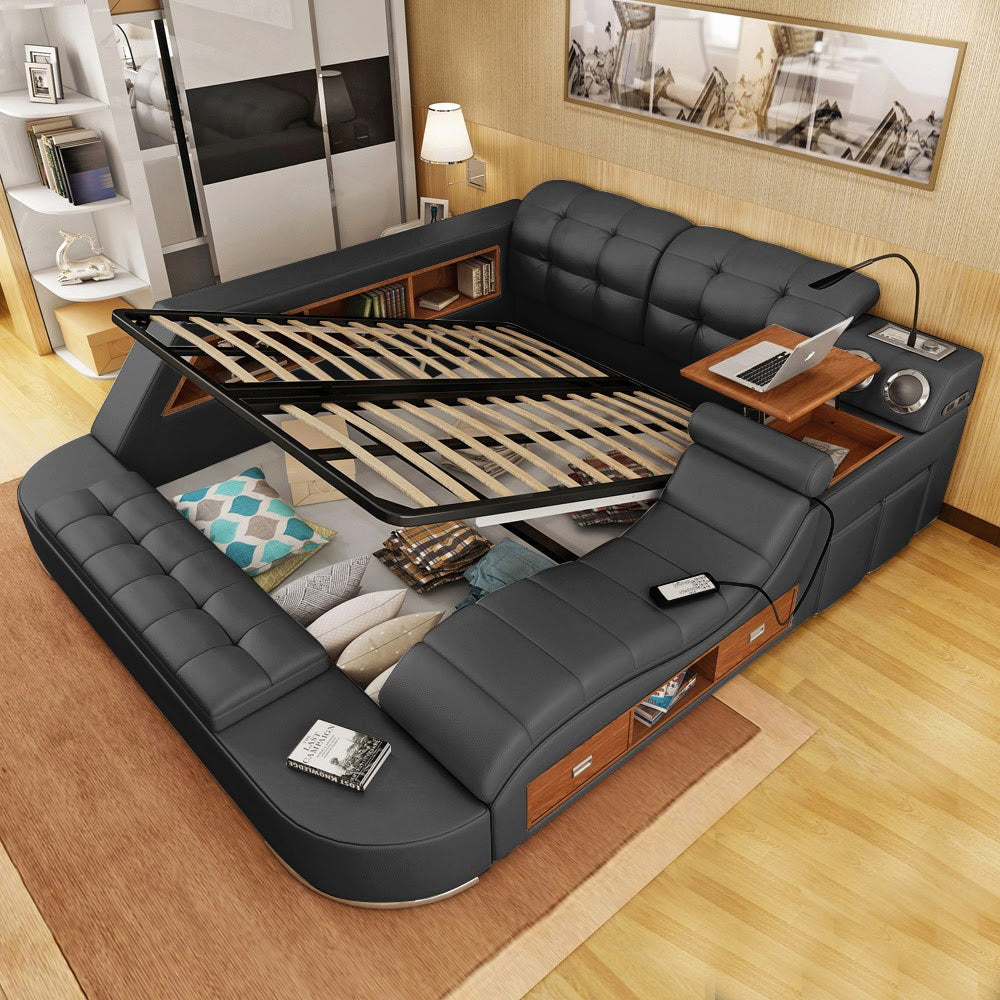
France Smart Furniture Market is expected to reach USD 189 million by 2030
Share

The France Smart Furniture Market, is expected to experience steady growth, reaching USD 189 million with a Compound Annual Growth Rate CAGR of 4% by 2030. According to a new research report by Next Move Strategy Consulting, the market is driven by increasing demand for space-saving solutions, the growing adoption of Internet of Things (IoT) technology, and rising disposable incomes.
Start with a FREE Sample – Download Now!
A key driver of growth in the French smart furniture market is the demand for multifunctional furniture that maximizes limited living space. In urban areas where living spaces are often small, consumers are increasingly seeking furniture that can serve multiple purposes. Smart furniture equipped with features such as hidden storage, foldable designs, and adaptable functionality is designed to meet the needs of city dwellers who prioritize compact, versatile living solutions.
Another significant factor fueling market growth is the rising disposable income in France. With more individuals having increased purchasing power, there is a growing trend toward investing in smart furniture solutions that provide added comfort, convenience, and efficiency. As disposable incomes continue to rise, French consumers are more willing to embrace innovative smart furniture that integrates with their lifestyles.
The penetration of IoT devices into residential spaces is also playing a pivotal role in the market's expansion. As connectivity and convenience become increasingly important, consumers in France are turning to smart furniture equipped with sensors and connectivity features to enhance their daily living experiences. By integrating with IoT devices, smart furniture provides more personalized and efficient living spaces, meeting the growing demand for seamless technology in home design.
However, the integration of smart furniture with existing smart home ecosystems remains a challenge. Compatibility issues, such as difficulties in connecting smart furniture to other devices and systems, could hinder the adoption of smart furniture in some households. Ensuring seamless integration with voice assistants, smart thermostats, and other home automation systems is crucial for the market to reach its full potential.
On the brighter side, rapid advancements in home automation technology are expected to create ample opportunities for the smart furniture industry in the future. The continued progress in home automation allows for smoother integration of smart furniture into broader smart home ecosystems. As these systems become more user-friendly, they offer greater versatility and appeal to a wider range of consumers, making it easier for them to control and personalize their living spaces.
Additionally, the collaboration between smart furniture and home automation systems contributes to energy efficiency, which aligns with the growing trend of eco-friendly living. As more consumers seek environmentally conscious solutions, the availability of stylish, user-friendly, and sustainable smart furniture options positions the market for long-term growth.
Conclusion:
The France Smart Furniture Market is set to experience steady growth, driven by the increasing demand for multifunctional furniture, rising disposable incomes, and the expanding penetration of IoT technology. While challenges such as integration with existing smart home systems may slow adoption rates, the rapid advancements in home automation present ample opportunities for market expansion. As consumers become more eco-conscious and seek solutions that enhance comfort and efficiency, the smart furniture industry is well-positioned to meet the evolving demands of homeowners in France.